A musical reading
The trailer for our Fontane program is here!!!
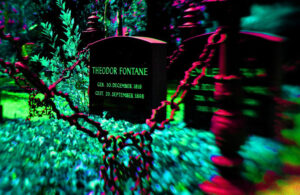
© J.Krumin
“We are deep in decadence;.
the sensational is valid, and only one the crowd still enthusiastically flocks to: the barest nonsense.”
Current? Brand-new!
And yet: from Theodor Fontane comes this quote.
A man with an eye for the near and
far.
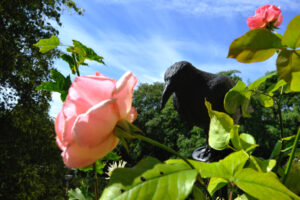
© J.Rötzsch
A man who questioned the existing world.
A man who gave Prussian female figures
names and feelings,
dedicated entire novels to them.
A man with stubbornness.
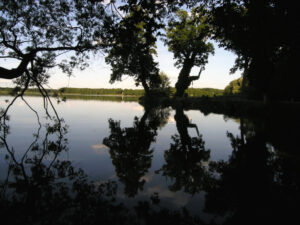
© J.Rötzsch
The native Prussian of Huguenot descent
felt a bit French
– he loved to hear his name pronounced in French:
[fɔ̃.tan] – but was captured in
taken prisoner of war in France and nearly executed as a suspected spy.
A man who set a monument to generosity in the “Ribbeck”
and, as it were, led his own struggle for existence.
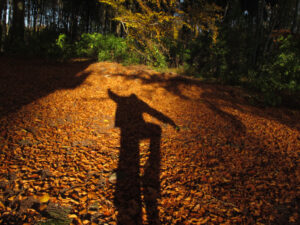
© J.Rötzsch
A man with love for his homeland. In his wanderings
through the Mark Brandenburg, in his
novels and poems, he left an incomparable
an incomparable monument….
For as Bismarck once said: “The Huguenots are the best
are the best Prussians…” .
Theodor Fontane (1819 – 1898), german Writer, journalist, storyteller and theater critic
On the occasion of his 200th birthday, we remember him in instrumental music, in songs (“Ribbeck”, “Heimat”,
“Spring”, etc.), and of course in readings, we remember him as a man who continues to provide answers – and hope – to the
Questions answers – and gives hope:
“Great times are always times when everything goes wrong.”
Ensemble instrumentations:
Trio: violin, piano and reading.
Trio: soprano, piano and reading
Quartet: soprano, violin, piano and reading
Salon K&K
Anna Barbara Kastelewicz and Johanna Krumin with guests
René Hofschneider – Reading
© Mirjam Knickriem
was born in Detmold and grew up with his two brothers in Berlin. There he came at the age of 15 years for the first time in contact with the theater and learned in initially small roles the Staatliche Schauspielbühnen Berlins under Hans Lietzau and Boy Gobert.
On the occasion of his 200th birthday, we remember him in instrumental music, in songs (“Ribbeck”, “Heimat”,
Here Hans Neuenfels discovered him for the role of “Ottokar” in his film Schroffenstein after Heinrich v. Kleist. The film was shot near Salzburg, where he then also began his training at the Mozarteum. After drama school, he took the long road through the provinces via Heidelberg, Aachen, Stuttgart and Marburg, finally returning to the Grips Theater in Berlin. With wonderful tours of the play LINIE 1 to Australia, New York and Jerusalem almost 5 years passed, until for the time being film and television came to the fore.
In addition to various productions (Tatort, Wilsberg, Doppelter Einsatz, Soko Leipzig, Soko Wismar, Danni Lowinski, Our Farm in Ireland, The Fat Man, Inga Lindström), he played the lead role in one of the first sitcoms realized in Germany (A Job for Life).
During breaks from filming, he continued to educate himself: during a three-year seminar in the Meisterklasse of Yuri Alschitz (GITIS Moscow), he learned the Russian methods of play, which were deepened with the study of Anatoly Vasilyev.
With the play Venice in the Snow (2008) René found his way back to the theater and also began ean extremely fruitful cooperation with Matthias Freihof. In the course of this collaboration, which continues to this day, René tours throughout Germany with various plays.
Besides acting, René Hofschneider studied Chinese medicine.
Johanna Krumin – Soprano
about who Mikis Theodorakis says: “Johanna sings so that you have to listen. Closer to me as a musician can not anyone be.”*, studied in her hometown of Berlin singing with Prof. Renate Krahmer and Julia Varady (HfM Hanns Eisler).
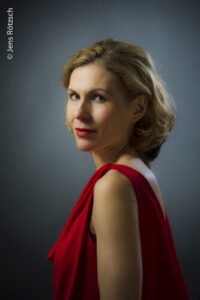
© J.Rötzsch
During her studies she worked permanently employed in the Rias Kammerchor Berlin.
Stage engagements followed, among others, at the Ruhrtriennale, at someen German theaters, at the Mongolian State Opera Ulan Bator and at the Hamburg State Opera as a cover.
As a concert and oratorio singer Johanna Krumin sang among others. at the Bachfest Leipzig, the MDR Musiksommer, with the Leipzig Chamber Orchestra, the German Chamber Orchestra, the Gewandhaus Octet, the Bach Collegium Berlin, the BSO, the Konzerthausorchester Berlin, the Potsdamer Kammerakademie, the Neue Westfälische Philharmonie, the Filmorchester Babelsberg, the Bratislava Chamber Orchestra, at various European chamber music festivals, in the form of radio concerts and CD recordings.
For the role of Manon/Massenet she was nominated as the best young singer of the year (Critics Award).
In addition, it comes regularly to artistic-musical cooperation with partners such as the German Bundestag, the Foreign Office of Germany, the Olympic Stadium Berlin, Phase 7 performing art and as a co-trainer with the Leadership Orchestra (in-house trainings).
In addition to regular pedagogical activity Johanna Krumin followed invitations to lead workshops such as “Le chant – Le Lied” at the German Cultural Week Benin/Africa, invitations to publish an article in the magazine “Forum Kirchenmusik” about text treatment in singing and to give a lecture on the topic “Relationship word and sound in singing”.
Your current song solo CD co-produced by Bayerischer Rundfunk has won the supersonic award record prize.
*(Athener Tagebuch Asteris Kutulas asti-blog.de 29.07.2015)
Anna Barbara Kastelewicz – Violin
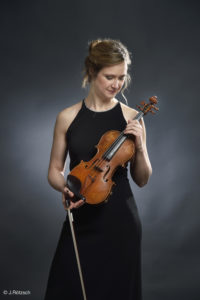
© J.Rötzsch
works as a soloist, chamber musician and concertmaster. She has a national and international presence with performances and tours in Europe and Asia. She records for radio, television and recordings. In her projects, she likes to combine the different arts and present her concerts.
Anna Barbara Kastelewicz founded two project orchestras, the “neue barockorchester berlin” and the “neue konzertorchester berlin”, which she conducts herself as concertmaster. From 2007 to 2013 she was the artistic director of the “Musikfestival Lüneburger Heide”, and in 2016 she founded “Kulturschlaglicht / Brandenburgische Kulturfestspiele in Schlösser und Gärten”, a festival that combines musical performances with light and sound design, lectures and guided tours of the historic sites with their special flair.
She devotes herself intensively to musicology. She researches on the topic “Music in the special camps of the Soviet occupation forces 1945 – 1950 on German soil”. It is her great concern to revive and permanently recall the music created and performed there and its background in lectures, performances and recordings. In close cooperation with the composer Kurt Hauschild, Anna Barbara Kastelewicz worked out the interpretation of his works, created an annotated catalog of his works and an edition of his 8th string quartet “Jan Palach”.
Anna Barbara Kastelewicz is an adjunct professor at colleges of music. The native
Berlin native lives as a freelance artist in Berlin.
Ulugbek Palvanov – Piano
was born in Uzbekistan in 1974 and began playing the piano at the age of five. He first attended the Special Music School in Tashkent and subsequently transferred to the Tchaikovsky Conservatory in Moscow. In 1997 Ulugbek Palvanov continued his studies in Germany, first with Prof. Klaus Bässler and later with Prof. Klaus Hellwig in Berlin. He also receives important artistic impulses from Prof. Lev Naumov.
Winning a number of national as well as international competitions laid the foundation for his now highly acclaimed pianistic career.
As a soloist, Ulugbek Palvanov performs throughout Europe, the USA, as well as in Russia. He has performed with the Moscow Symphony Orchestra, the Israel Philharmonic, the Bolzano Chamber Orchestra, and the Georgian Philharmonic Orchestra, among others. As a much sought-after soloist and chamber musician, Ulugbek Palvanov has performed at the Newport Music Festival and Van Cliburn Foundation in the USA, at the Kyoto Music Festival in Japan, as well as in many renowned concert halls of the present day. His selected future projects include concert performances in Berlin, Oslo, Hamburg and Austin.
In May 2018, Ulugbek Palvanov in duo with David Yonan (violin) was a laureate of a silver medal at the Global Music Awards in the USA, Los Angeles: in the categories “Ensemble and New Composition” for the live recording of a work by the Italian-Canadian composer Sandro Fazzolari, Sonata No. 1 op. 5 and the Sonata No. 2 for violin and piano.
Since 2014, he has been the artistic director of the Pianowerke concert series. Palvanov lives in Berlin.
© Fotos: Jens Rötzsch/J.Krumin/M.Knickriem
